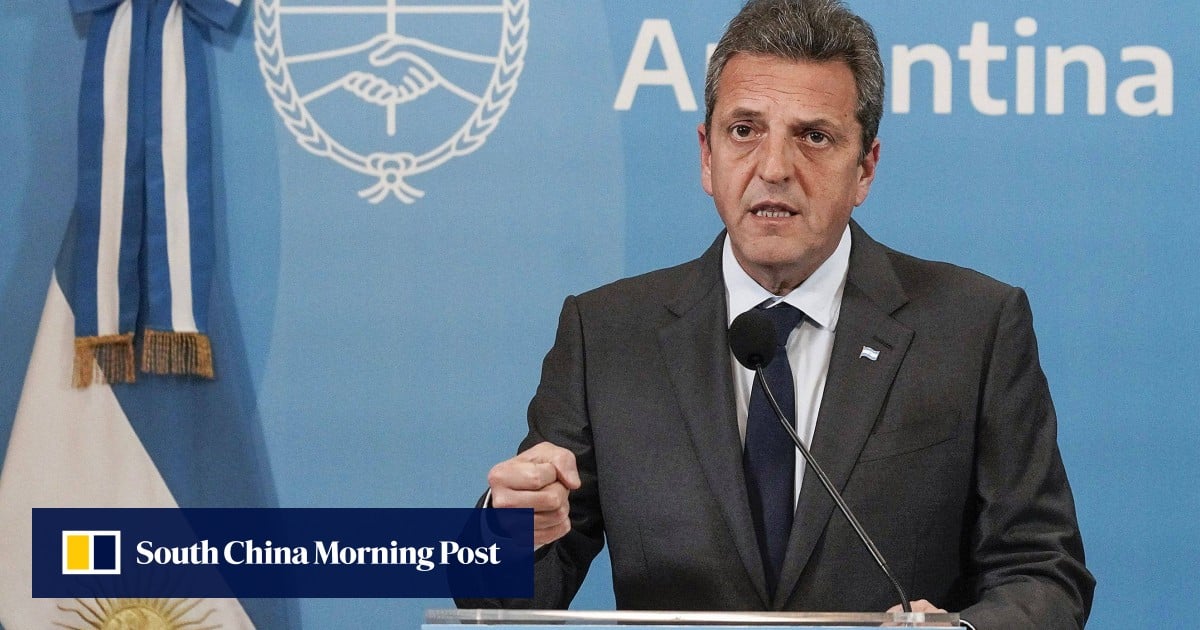
The deal represents another step in the South American country’s wider usage of China’s currency following its decision in June to allow commercial banks to open customer accounts in yuan. Also this year, Argentina’s securities regulator approved the issuance of yuan-denominated securities in the local market.
A government source familiar with the matter told the Post that the swap was expected to be a short-term debt repaid with reserves, with China’s involvement possibly serving as “a temporary bridge” until the funds committed by the IMF arrive.
Neither the duration of the loan nor the interest rate Argentina would have to pay on the new debt were disclosed by either the CAF or the economy ministry. Buenos Aires said the terms of the swap with the PBOC were part of a confidential agreement and could not be made public.
The IMF debt in question dates back to 2018, when then-president Mauricio Macri secured a US$44 billion loan, the largest in IMF history at the time. The debt was later renegotiated by the government of Alberto Fernández, Argentina’s current leader.
Buenos Aires committed to the IMF to adjust its level of public spending, boost reserves and maintain competitive interest rates in exchange for new disbursements to pay off the debt it took on five years prior.
The agreement with the Chinese government averted “a dramatic situation” as Buenos Aires would have lacked the dollars needed to pay the debt, said Ariel Gonzalez Levaggi of the Pontifical Catholic University of Argentina.
Levaggi believed the move would expand Chinese influence in the Argentine economy, as more than half of the country’s international reserves are already in renminbi. He voiced concern that the strategy could prove “unsustainable”, as “the renegotiated terms for the debt to the IMF do not provide a viable way out for Argentina”.
[embedded content]
“Argentina is trying to buy time, and the Chinese are undoubtedly helping in this endeavour. However, the question now is what concessions Beijing will demand in return,” Levaggi said.
China has been pressuring the Argentine government to buy Chinese JF-17 aircraft and 8×8 armoured fighting vehicles manufactured by China North Industries Group Corporation, also known as Norinco, he added.
Beijing is meanwhile awaiting approval for the state-owned China National Nuclear Corporation to start building a new US$8.3 billion nuclear power plant in the country.
As Fernández was unable to cut a deal with Washington for possible debt relief with the IMF, the Argentine president turned to Beijing for help, Levaggi explained.
Eventually Buenos Aires would “be forced to pick a side and it will be very, very complicated,” he said. “US-China relations are facing a turbulent moment. This dual game played here is likely to end, sooner or later”.
The agreement might not bring immediate economic advantages to Beijing, but it “certainly helps to expand the use of the renminbi as an international currency, a long-standing plan of the Chinese”, according to Alexandre Coelho of the International Political Science Association.
“Although the renminbi has been part of the IMF currency basket since 2016, its use for debt settlement is not common. The path chosen by Argentina sets a precedent and may, in the future, be adopted by other emerging countries in a similar situation,” said Coelho, who formerly served as a legal adviser to the Bank of China.
“This agreement is also perhaps indicative of how much US influence has declined in the IMF, used so many times in the past by Washington to guide Latin American policy,” he added. “China is advancing while Americans just watch.”


